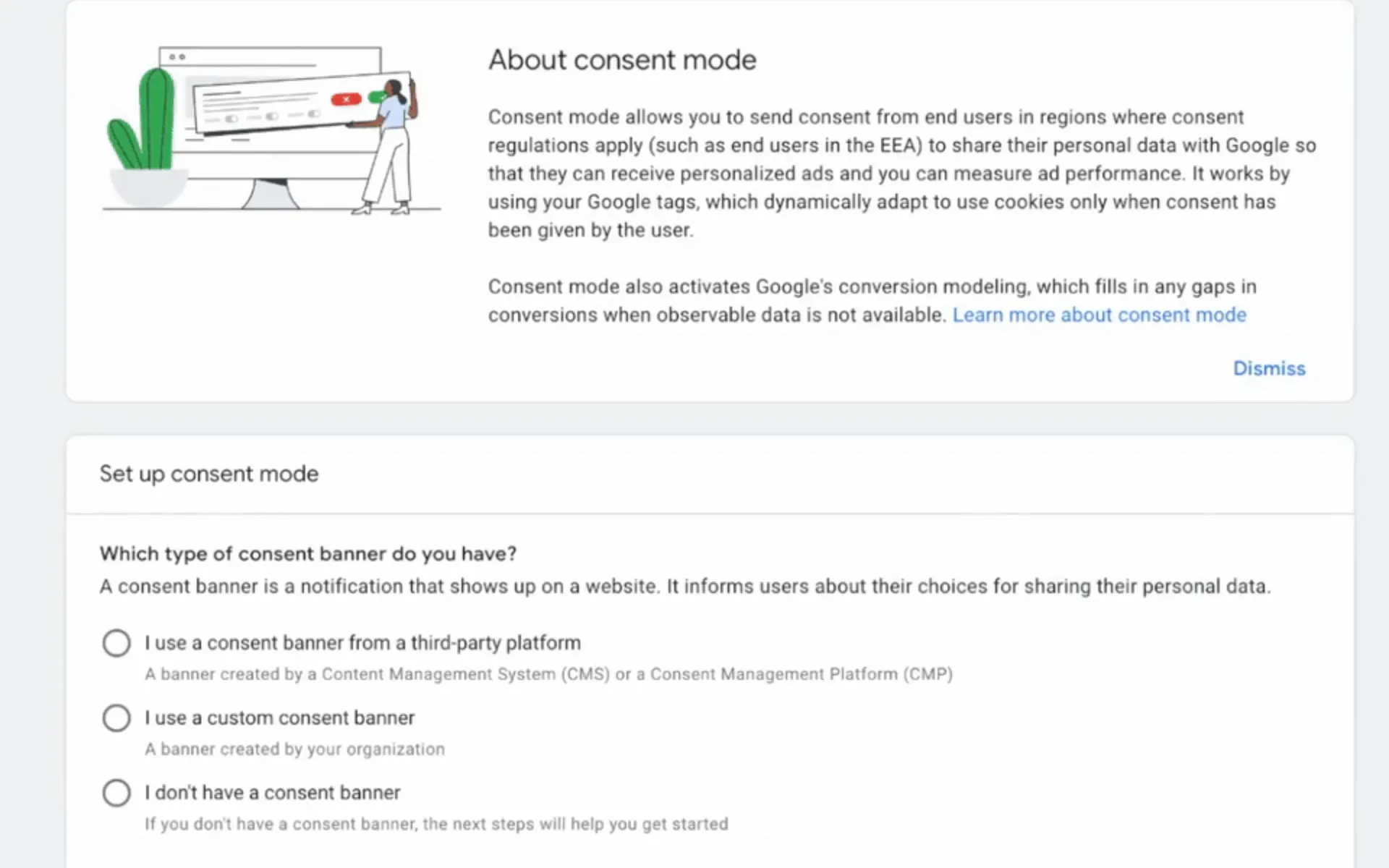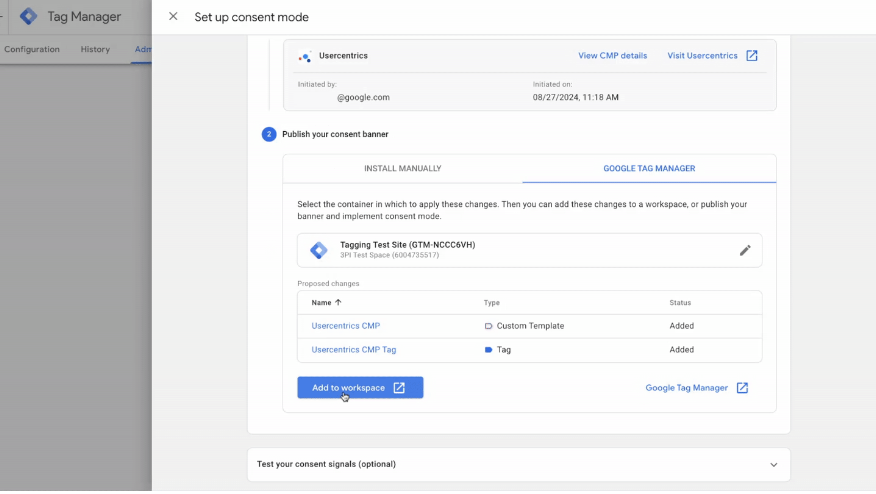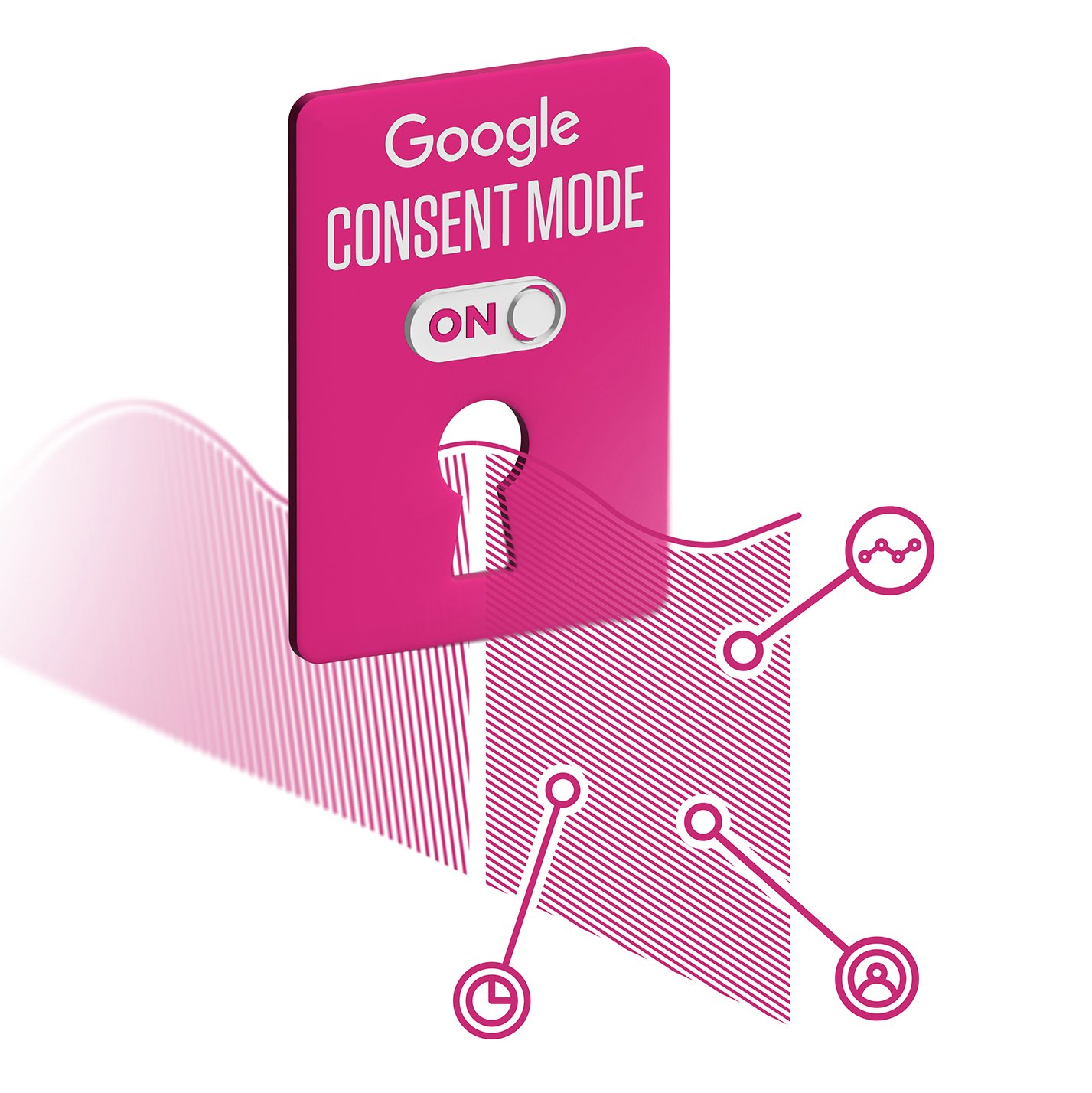Google has launched new consent management tools for advertisers. These tools help comply with privacy regulations and improve ad targeting.
Google’s new consent management tools are designed to assist advertisers in navigating complex privacy regulations. These tools ensure that advertisers obtain user consent in a compliant manner, enhancing user trust and data transparency. Advertisers can now better manage user permissions, making it easier to deliver targeted ads while respecting user privacy.
This update is crucial for businesses aiming to balance effective advertising with stringent privacy laws. Google’s initiative reflects the growing importance of data privacy and the need for advertisers to adapt to changing regulatory landscapes. With these tools, advertisers can achieve better compliance and maintain robust advertising strategies.
Introduction To New Tools
Google has introduced new consent management tools for advertisers. These tools help manage user data consent efficiently. They ensure compliance with global data privacy laws.
Purpose And Need
The purpose of these tools is to enhance data privacy. They help advertisers comply with laws like GDPR. These tools simplify obtaining user consent.
- Compliance: Ensure adherence to data privacy laws.
- Transparency: Provide clear information to users.
- Efficiency: Streamline the consent process.
Target Audience
The target audience includes advertisers and marketers. These tools benefit businesses that collect user data. They are essential for companies with global operations.
| Audience | Benefits |
|---|---|
| Advertisers | Ensure compliance, improve transparency |
| Marketers | Streamline consent processes, build user trust |
| Global Businesses | Adhere to international data laws |
Key Features
Google has introduced new consent management tools for advertisers. These tools are designed to help advertisers comply with data privacy laws. Here are the key features of these tools:
User Consent Management
The User Consent Management feature allows advertisers to easily manage user permissions. This helps in collecting and storing user consent information efficiently.
- Customizable consent forms
- Automated consent tracking
- Real-time consent updates
Advertisers can create and customize consent forms. These forms can be tailored to fit brand requirements. Automated consent tracking ensures that all user consents are recorded accurately. Real-time updates help in maintaining up-to-date consent records.
Data Privacy Compliance
The Data Privacy Compliance feature ensures that advertisers meet legal requirements. This includes compliance with GDPR and CCPA regulations.
| Feature | Description |
|---|---|
| GDPR Compliance | Ensures adherence to European data privacy laws. |
| CCPA Compliance | Meets California’s data privacy regulations. |
| Data Encryption | Protects user data with advanced encryption. |
These tools help in meeting legal requirements. They ensure data is encrypted and secure. This builds user trust and enhances brand reputation.
Implementation Process
Implementing Google’s new consent management tools can seem daunting. This guide will break down the steps. It will help you integrate these tools seamlessly into your existing systems.
Setup Steps
The setup process is straightforward. Follow these steps to get started:
- Sign in to your Google Ads account.
- Navigate to the Tools & Settings menu.
- Select Consent Management under the Measurement section.
- Click on Create New Consent button.
- Fill in the required details and click Save.
These steps will help you configure the basic settings. Ensure you have the necessary permissions to make changes.
Integration With Existing Systems
Integrating the new tools with existing systems is crucial. It ensures a smooth transition.
- Check compatibility with your current CMS.
- Update your website’s privacy policy.
- Implement the provided
tags in your website’s header. - Test the integration in a staging environment.
Use the following code snippet for easy integration:
Ensure the script is placed correctly. Test thoroughly to avoid issues.

Credit: ppc.land
Benefits For Advertisers
Google’s new consent management tools offer numerous benefits for advertisers. These tools help in gaining user trust and improving ad performance. Let’s dive into these advantages:
Enhanced User Trust
With Google’s consent management tools, advertisers can collect user data ethically. Users can see how their data is used, which builds trust.
- Transparency: Users get clear information on data usage.
- Control: Users can manage their data preferences.
Trust leads to better user engagement with ads. Users feel safe knowing their data is protected.
Improved Ad Performance
Better user trust leads to higher ad performance. Users are more likely to interact with ads they trust.
- Higher Click-Through Rates (CTR): Users click on trusted ads more often.
- Better Targeting: Accurate data helps in showing relevant ads.
Accurate data leads to more personalized ads. Personalized ads perform better in most cases.
| Benefit | Description |
|---|---|
| Transparency | Users know how their data is used. |
| Control | Users can manage their data preferences. |
| Higher CTR | Trusted ads get more clicks. |
| Better Targeting | Accurate data shows relevant ads. |
Challenges And Considerations
Google’s new consent management tools are a game-changer for advertisers. These tools help manage user permissions and data privacy. But they also bring challenges and considerations.
Technical Hurdles
Implementing new tools can be tough. Advertisers must update their systems. This process can be time-consuming and costly. Here are some common technical hurdles:
- Integration with existing platforms
- Ensuring data accuracy
- Maintaining system performance
Advertisers need skilled tech teams. These teams must handle integrations smoothly. They should also test thoroughly to avoid disruptions.
Legal Implications
Consent management involves legal rules. Advertisers must comply with data privacy laws. Non-compliance can lead to heavy fines. Here are key legal considerations:
| Region | Law |
|---|---|
| EU | GDPR |
| California | CCPA |
Understanding these laws is crucial. Advertisers should seek legal advice. This ensures they stay within legal boundaries. Clear consent practices build user trust.

Credit: www.searchenginejournal.com
Case Studies
Google has introduced new consent management tools for advertisers. These tools aim to help advertisers comply with data privacy regulations. By using these tools, advertisers can gather user consent effectively.
Success Stories
Several companies have found success with Google’s new tools. One e-commerce store saw a 20% increase in user consent rates. They implemented the new consent tools on their website.
Another tech company improved user trust by using these tools. They reported a 15% boost in customer engagement. This was due to transparent consent management.
A marketing agency also benefited from these tools. They noted a 25% decrease in bounce rates. This was attributed to clear and simple consent forms.
| Company | Benefit | Outcome |
|---|---|---|
| E-commerce Store | Increased User Consent | 20% Increase |
| Tech Company | Improved User Trust | 15% Boost in Engagement |
| Marketing Agency | Reduced Bounce Rates | 25% Decrease |
Lessons Learned
Companies learned valuable lessons from using these tools. One key lesson was the importance of clear communication. Users appreciated straightforward consent requests.
Another lesson was transparency. Users want to know why their data is collected. Providing this information builds trust.
Lastly, simplicity is crucial. Complicated consent forms can deter users. Simple forms increase consent rates.
- Clear Communication
- Transparency
- Simplicity
Future Developments
Google’s new consent management tools for advertisers are a game-changer. These tools aim to streamline user consent and data privacy. The future holds exciting developments for these tools.
Upcoming Features
Google plans to introduce several new features. These features will enhance user experience and advertiser efficiency. Here are some upcoming features:
- Advanced Reporting: Detailed consent reports for better insights.
- Granular Control: Advertisers can manage consent at a more detailed level.
- AI-Powered Recommendations: Personalized consent suggestions based on user behavior.
These features will help advertisers comply with regulations and optimize their campaigns.
Long-term Vision
Google’s long-term vision includes several ambitious goals. They aim to create a seamless, privacy-first advertising ecosystem.
Below are some of their long-term objectives:
- Universal Consent Framework: A unified system for all platforms.
- Enhanced User Trust: Building trust through transparent practices.
- Global Compliance: Ensuring compliance with international privacy laws.
Google’s commitment to these goals will shape the future of digital advertising.

Credit: trapezemedia.co.uk
Frequently Asked Questions
What Are Google’s New Consent Management Tools?
Google’s new consent management tools help advertisers comply with privacy regulations. These tools streamline consent collection and management for user data. They ensure ads are shown to users who consented.
How Do These Tools Benefit Advertisers?
These tools benefit advertisers by simplifying regulatory compliance. They help maintain user trust by ensuring data privacy. This leads to better ad targeting and performance.
Are These Tools Easy To Integrate?
Yes, Google’s consent management tools are designed for easy integration. They provide clear guidelines and support. This makes the setup process straightforward for advertisers.
Do These Tools Support Gdpr Compliance?
Absolutely, Google’s consent management tools are built with GDPR compliance in mind. They help advertisers meet European Union data protection requirements. This ensures user data is handled legally.
Conclusion
Google’s new consent management tools empower advertisers to navigate privacy regulations efficiently. These tools ensure compliance and enhance user trust. By adopting them, advertisers can improve their campaign performance while respecting user privacy. Stay ahead in the advertising game by leveraging Google’s latest innovations.
Adapt now to thrive in a privacy-centric digital landscape.

